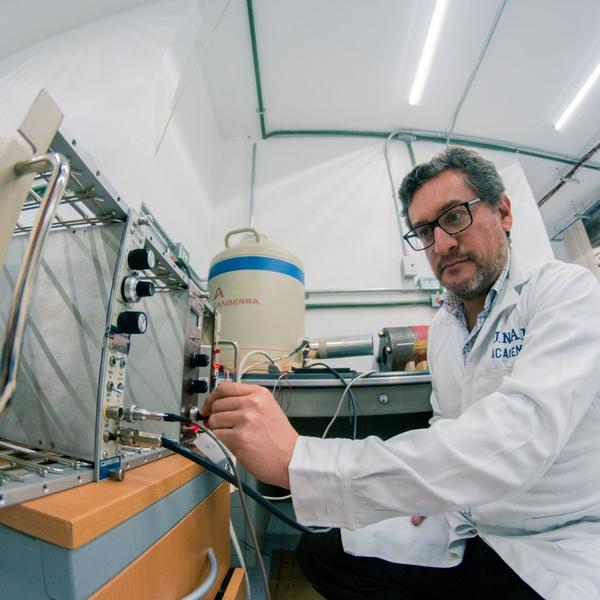Former SNOLAB research scientist wins prestigious award

Every year, the Marcos Moshinksy Foundation in Mexico awards fellowships to early career scientists who have exceptional capacity for productive scholarship or exhibit creativity in their area of specialization. This year, one of the physics fellowships was awarded to Dr. Eric Vázquez Jáuregui of the Instituto de Física, Universidad Nacional Autónoma de México.
Prior to his position at the Instituto de Física, Eric worked at SNOLAB as a post-doctoral fellow and was eventually hired as a research scientist in 2013. At SNOLAB, he worked on SNO+, DEAP-3600, COUPP, and PICO. Eric was also involved in the early development of the low background lab. His low background lab work included a project monitoring the impact of the Fukushima nuclear disaster on groundwater in Lively by comparing isotopes in winter ice with rainfall that had been activated by fallout from Fukushima. This project was selected as one of the editors’ highlights in the Canadian Journal of Physics for 2012.
In 2014, Eric moved to Mexico, where he continues to be a leader in physics. In 2015 he was instrumental in establishing a Canada-Mexico student partnership at SNOLAB, through the Scientific Summers in Foreign Laboratories program. The program is a project of the Division of Particles and Fields of the Mexican Physical Society (DPF-MPS) with the goal of providing physics students with the opportunity to be involved in leading-edge research projects at international labs.
Eric is still involved with the search for dark matter and studies of neutrino properties as a member of the DEAP-3600, PICO, and SNO+ collaborations. He also recently joined the Scintillating Bubble Chamber collaboration, which is using bubble chamber technology to study neutrino properties and to search for dark matter.